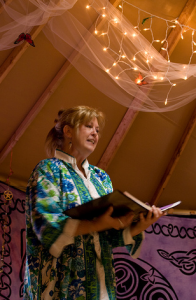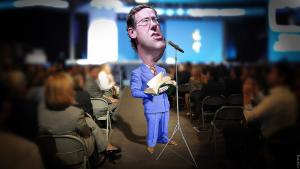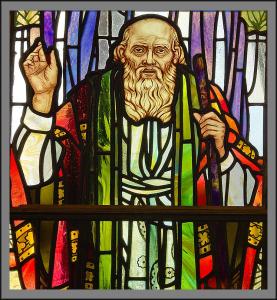 In two weeks I will be returning to my old Dallas school to preach at a graduation event for persons in the Course of Study School, a United Methodist alternative to seminary training that for many years has supplied hundreds, if not thousands, of pastors for churches in every Annual Conference if the church. These clergypersons come from wildly diverse backgrounds, possessing in some cases PhD’s and in other cases still working to finish undergraduate school. I have taught in the school numerous times over the years but my move to California stopped my participation in the Dallas school. However, for reasons I am not altogether clear about, I have been asked, apparently by some students whom I have taught, to serve as preacher for this year’s graduation service. I am honored and flattered to do so.
In two weeks I will be returning to my old Dallas school to preach at a graduation event for persons in the Course of Study School, a United Methodist alternative to seminary training that for many years has supplied hundreds, if not thousands, of pastors for churches in every Annual Conference if the church. These clergypersons come from wildly diverse backgrounds, possessing in some cases PhD’s and in other cases still working to finish undergraduate school. I have taught in the school numerous times over the years but my move to California stopped my participation in the Dallas school. However, for reasons I am not altogether clear about, I have been asked, apparently by some students whom I have taught, to serve as preacher for this year’s graduation service. I am honored and flattered to do so.
This invitation set me thinking about a part of the preaching event that used to cause me a good deal of worry as I taught my seminary students over 28 years the art of preparing and delivering a sermon. In those years I led 60 classes of introductory preaching and perhaps an equal number of advanced classes of various kinds. In every class, the subject I am addressing today came up: what do you do to prepare a sermon? Is there a tried and true series of steps that all preachers should follow to get from text to sermon, from initial idea to the pulpit? My answer was always “no,” and my “no” got louder and more forceful the more I faced a class of wanta-be homileticians. When I received this most recent invitation to deliver a sermon back in the Perkins School of Theology chapel, I began thinking about what I would say. But what was I thinking about and why? That is the question to be asked even before I imagine just how I want to say what it is I decide to say.
I have preached quite literally thousands of sermons in my career, not, I am sure, as many as some of you reading this, you pastors who preach each week, perhaps more than once. What I have discovered, having led at least 100 workshops on preaching with active practitioners of the art, is that each preacher goes about this opening task of initial thought about the subject of the upcoming word in distinctly different ways. I vividly remember the preacher who over the course of his ministry had determined that the only way he could prepare for his Sunday address was to go to the church at about 10:00PM on Saturday night, stand in the pulpit of the empty sanctuary all night long, and wrestle a word orally by speaking it again and again, honing and sharpening as he went. You may find that activity as wild as did I, but it was his and for him it worked. I trust it made the preacher Sunday afternoon nap all the more necessary!
I could never do that, I assure you, nor would I recommend it to anyone else. However, my own preparation process has changed radically over the course of my preaching ministry. When I was associate pastor of a large and growing church in Louisiana in the late 1970’s, I had my own weekly Wednesday service so preached each week. My seminary training in preaching was, not to be too cruel, poor at best. I heard what my teachers did when they preached which helped me very little as I tried to become myself as preacher. So, I wrote out every word, since I enjoyed writing, and read it with as much energy and ease as I could muster. I had had a fair amount of stage experience, as well as a lot of vocal solo work, before my seminary experience, so presentation was not my problem. So, I read each sermon, and do not remember them as too awful, though you would need to consult my hearers for a fairer evaluation.
Beyond my weekly sermon, I also taught a weekly Bible study to a group in the church. One day one of the participants came to me after class and said, “You know, John, you ought to preach more like you teach, looking right at us and simply talking to us.” It is true that when I taught the Bible, I merely opened the book to the text of the day and relayed what I knew about it, which was a fair amount since I came to my pastorate with a PhD in Hebrew Bible. I took that person’s advice seriously, and over the next weeks began to prepare to preach quite differently. I wrote less and less, moving from fewer sentences, to sentence fragments, to single words, and at the end of my time there no writing at all. I merely thought the sermon, or perhaps better said, I “wrote” it orally, often beginning with the end, so I knew where I wanted to go, and then thinking of an arresting beginning to introduce and suggest the subject. I then kept the middle bits quite open, working to connect the ideas but allowing the moment to present to me just how it might be said.
I was always reluctant to reveal, especially to my beginning students, this particular method of preparation, since it was so peculiarly based in my own personal style and training. When pressed, I would speak about it, but would at the same time urge the students to tread lightly. They each needed to try a method that matched them before taking on one that might lead to sermonic disasters. I suggested that it would perhaps take them 50 sermons to settle on a style of sermon preparation that they would enjoy and that could serve them well.
So, in my case, I am preparing my sermon even as I am writing this brief piece about preparing a sermon! I think I have an ending, and I have reflected on a decent beginning. But all that stuff in the middle? Well, the text I have chosen will dictate some of that, since this sermon, I imagine, will be primarily a narrative one, following the arc of the text of the evening. I know the text intimately, and its movement suggests a sermon to me already. I will trust that God will take my words and make them far better than they might be on their own. But so do we all pray when we preach, that our words will not become mere empty twaddle. I pray that for you, too. May your preparation be crowned with a word from God, and may your people hear you with joy!
(Images from Wikimedia Commons)












